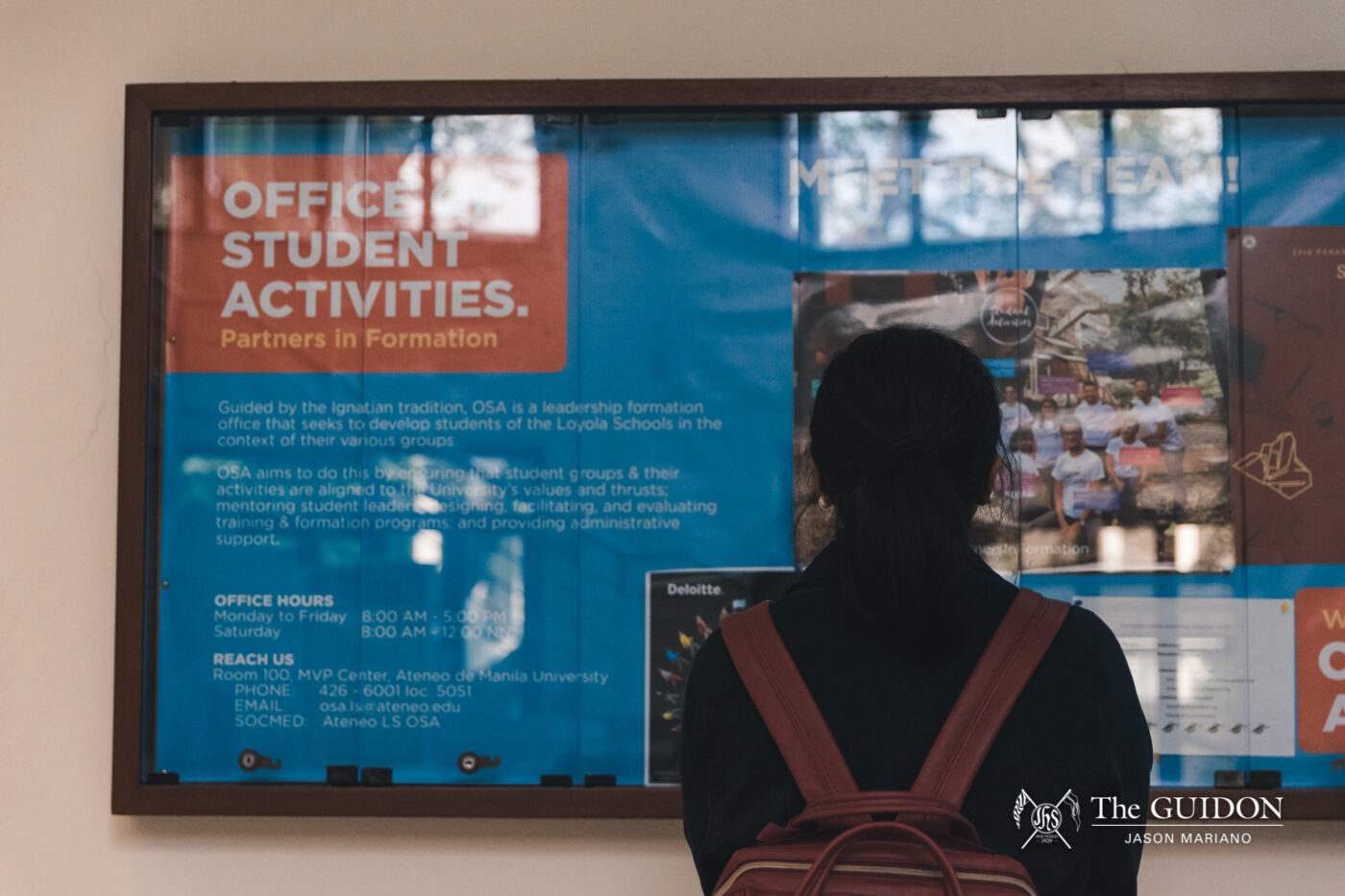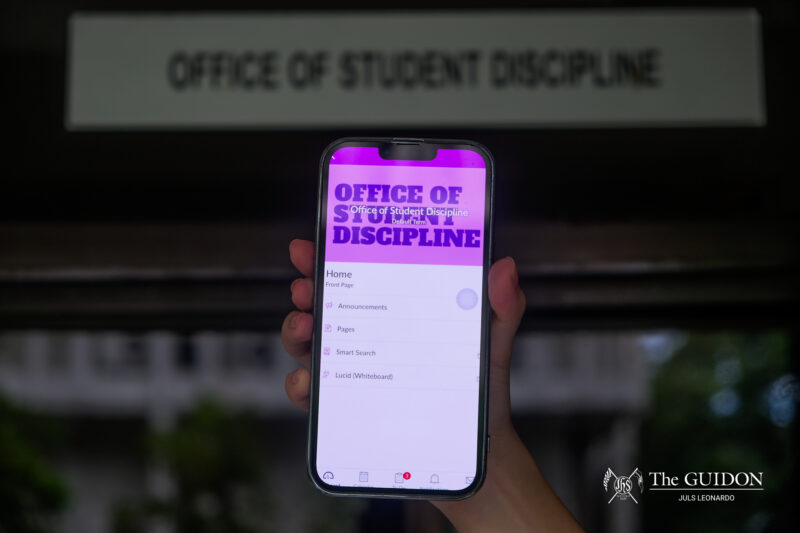THE OFFICE of Student Activities (OSA) formally presented the findings from Project SOAR (Student Organization Assessment and Review) to leaders of student organizations in a series of meetings from January 31 to February 2 at the Manuel V. Pangilinan building.
Project SOAR is an initiative of OSA which aims to review and evaluate the longstanding performance management system (PMS), OSA’s basis in revoking or maintaining the accredited status of student organizations under COA.
Once Project SOAR’s feedback gathering, redesigning, and beta testing is concluded by intersession of school year (SY) 2018-2019, the new PMS will be officially called SOAR and will be fully implemented come August.
Although SOAR was expected to be enforced for the second semester, OSA reported that it is still undergoing scrutiny and may be subject to changes.
PMS in retrospect
PMS has always been the basis on deciding which organizations will be accredited, and granted benefits such as room reservations and subsidies for their respective projects.
Student organizations who fail to meet OSA’s standards, like presentations of year-end reports and expected outputs, will be revoked of their status as accredited organizations under COA and will not have access to financial support from the office.
Since its implementation in SY 2007-2008, the PMS had remained unevaluated and unchanged, which gained the attention and negative feedback from student organizations.
Last March 22, 2017, OSA released a memorandum that the office will conduct an intensive assessment and overhaul of the PMS in response to the growing clamor for a better PMS.
OSA eyed a new assessment system that will cater better to the nine clusters of student organizations under Council of Organizations of the Ateneo (COA) and soon, including independent organizations under the League of Independent Organizations (LIONS).
According to Railey Montalan, a member Microsoft Student Community (MSC) and Student Representative of LIONS, “OSA is supposed to be ready [with] a new structure framework for assessing and monitoring organizations [based on] the data they have gathered from the various consultations, surveys, and information-gathering activities they have conducted.”
On its last phase
In an interview with Aeron Syliongtay, OSA’s SOAR co-coordinator, he mentioned that “Project SOAR is divided into three major phases [of evaluation, assessment, and revamping].”
Under Phase 1, the old PMS was evaluated through the help of feedback gathering and pocket conversations with student leaders.
Phase 2 involved mainly the analysis and pinpointing of key determinants and new criteria for accreditation, with the aid of related literature and focused group discussions.
OSA is currently at Phase 3 where the new system is to be redesigned.
The office finished the consultation roadshows, where the new system was presented to leaders of organizations under COA and LIONS last January 24 to 30 and February 1 to 2, respectively.
During the consultations, representatives from COA and LIONS were called to better understand the demands and impact of the new system, ask questions, and give feedback should they see points for improvement.
Sanggunian President Ia Marañon said, “The concern of student organizations should direct the changes of the demand of the new PMS.”
Syliongtay said that one of the most significant changes in the proposed SOAR is that organizations “will be required to accomplish a self-assessment questionnaire that will evaluate how organizations are performing in embodying the competencies and standards that are exhibited by an excellent Ateneo student organization.”
Levelling expectations
According to LIONS Coordinator Nicholas Rueda, OSA’s decision to overhaul the old PMS and criteria for accrediting organizations will be of “utmost significance” to organizations under LIONS because the PMS determines whether or not LIONS will receive funding, room reservation, access to EDSA Walk promotion boards, and lamp posts —all of which independent organizations have limited access to.
Albeit cognizant of OSA’s efforts, Rueda said, “I wish we weren’t kept in the dark for so long. It would have been nice to let us know of new revisions being added even if it’s not final.”
Rueda added that after being involved during the initial FGD’s and surveys, they were vaguely informed about the progress on Project SOAR, and it is only until the roadshow consultations that they were once again asked to participate.
With the new system still subject to being finalized, OSA remains hopeful.
On behalf of OSA, Syliongtay stated, “We are hoping that everyone will be open to the changes that will be made and see how the new system can really be a tool not just for evaluation but also for formation.”
He mentioned that there will naturally be a period of adjustment once the new system is launched because the old PMS had been in place for years.
Marañon said that SOAR may change the org life and culture in Ateneo, which will be a big adjustment for the student body.
Nevertheless, she added that “if there is a demand amongst organization heads, Sanggu and COA are well in the position to bridge that gap.”







